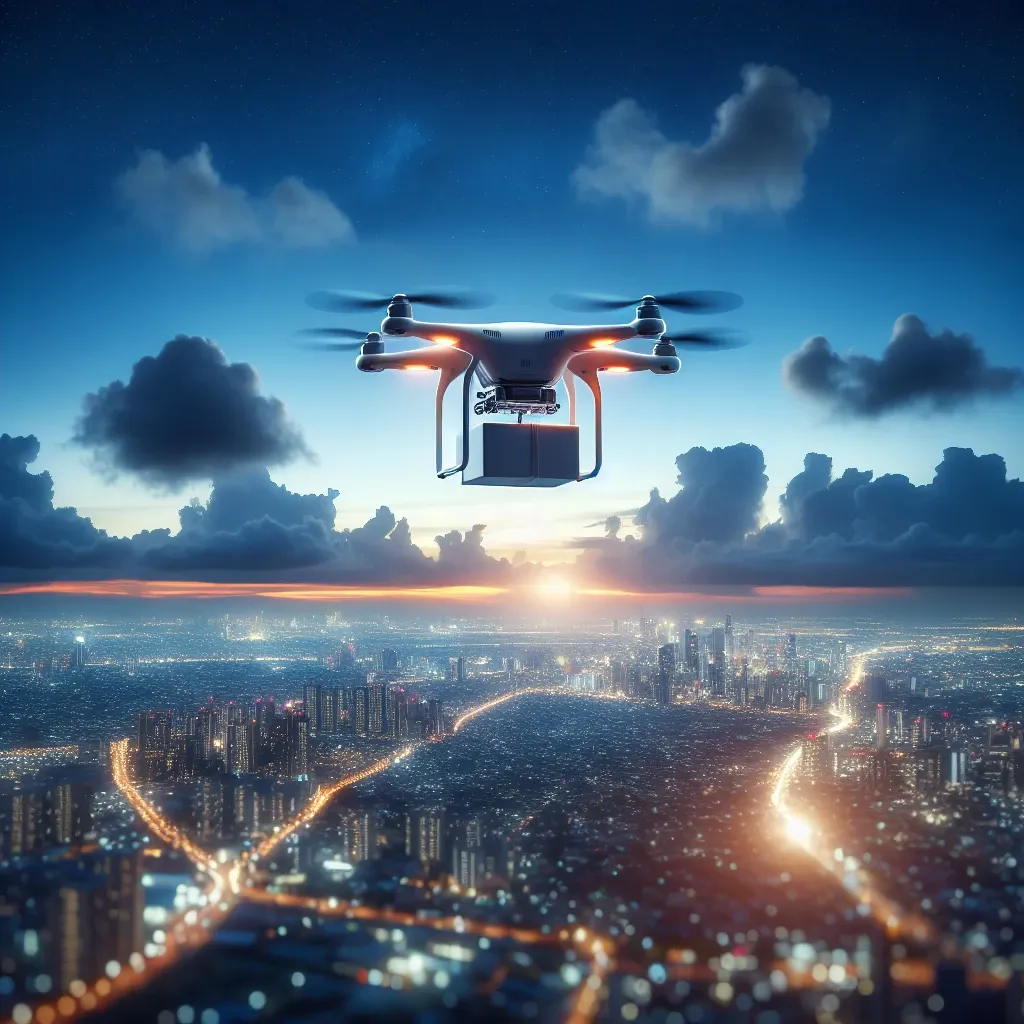UPS Flight Forward Expands Medical Supply Drone Delivery
The landscape of medical supply delivery is undergoing a revolutionary change as UPS Flight Forward takes significant strides in expanding its drone delivery operations. This innovative approach not only enhances the efficiency of medical logistics but also provides critical support to healthcare providers in urgent situations.
Historical Context of Drone Delivery
The concept of using drones for delivery dates back several years. Initially, drones were deployed for military purposes, but their utility has gradually transcended into commercial sectors. In recent years, especially during the COVID-19 pandemic, the need for timely and efficient delivery of medical supplies became more pronounced. UPS recognized this opportunity and began testing drone deliveries in partnership with various healthcare institutions.
The Evolution of UPS Flight Forward
UPS Flight Forward, a subsidiary of UPS, was officially launched in 2019 with the aim of revolutionizing logistics through drone technology. This division has focused on integrating drone delivery systems into the broader supply chain, with a special emphasis on medical supplies. The approval from the Federal Aviation Administration (FAA) for UPS to operate a drone airline marked a significant milestone, allowing it to develop and expand its delivery capabilities.
Current Expansion of Drone Delivery Services
Recently, UPS Flight Forward announced an expansion of its drone delivery services specifically tailored to the medical sector. This initiative will allow healthcare facilities, pharmacies, and patients to receive critical medical supplies, including prescriptions, vaccines, and other urgent medical items, much faster than traditional delivery methods.
Benefits of Drone Delivery in Healthcare
- Rapid Response Times: Drones can significantly reduce the time it takes to deliver essential medical supplies, often completing deliveries in under 30 minutes.
- Access to Remote Areas: Drone delivery can reach areas that are otherwise difficult to access, ensuring that essential medical supplies are available even in rural or isolated locations.
- Cost Efficiency: Over time, drone deliveries may prove to be more cost-effective compared to traditional delivery methods, as they reduce labor and fuel costs.
- Environmental Benefits: Drones are typically electric, which contributes to reduced carbon emissions compared to conventional delivery vehicles.
Challenges and Considerations
While the benefits of drone delivery are substantial, there are several challenges that UPS Flight Forward must navigate as it expands its services:
- Regulatory Hurdles: The FAA and other regulatory bodies have strict guidelines that UPS must adhere to, which can complicate expansion efforts.
- Technological Limitations: Current drone technology limits payload capacity and flight distance, which may restrict the types of medical supplies that can be delivered.
- Public Perception: There may be concerns regarding privacy, safety, and the reliability of drone deliveries among the public and healthcare providers.
Future Predictions for Drone Delivery
The future of drone delivery in the medical sector looks promising. Experts predict that as technology advances, drones will become even more capable, supporting larger payloads and longer distances. With the integration of AI and machine learning, drones could potentially optimize their delivery routes in real-time, further enhancing their efficiency.
Real Examples of Drone Delivery in Action
UPS Flight Forward has already conducted several successful drone deliveries. For instance, it has partnered with healthcare institutions to deliver medical supplies during emergencies, proving its effectiveness in real-world situations. These pilot programs have garnered positive responses from both healthcare providers and patients, highlighting the potential for widespread adoption.
Cultural Relevance and Impact
The expansion of drone delivery services is not just a technological advancement; it reflects a cultural shift towards embracing innovative solutions in healthcare. This move resonates with a growing demand for efficiency and immediacy in medical services, especially in times of crisis. As society continues to experience challenges such as pandemics and natural disasters, the ability to deliver medical supplies quickly and efficiently could save lives.
Conclusion
UPS Flight Forward’s expansion of medical supply drone delivery is a transformative development with far-reaching implications for the healthcare industry. By improving delivery speed, increasing accessibility, and reducing costs, UPS is setting a new standard for medical logistics. As the technology continues to advance and regulations evolve, we can expect to see drone delivery becoming an integral part of the healthcare supply chain, ultimately benefiting patients and healthcare providers alike.

Leave a Reply